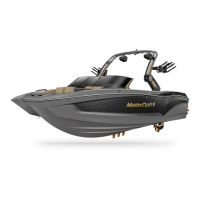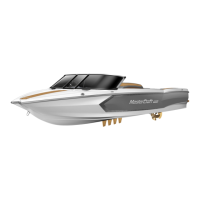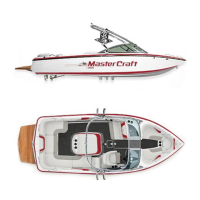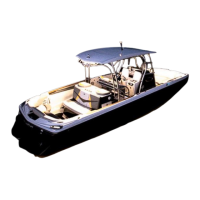Alcohol is even more hazardous on the water than on land.
The marine environment of motion, vibration, engine noise,
sun, wind and spray accelerate a drinker’s impairment.
These stressors cause fatigue that makes a boat operator’s
coordination, judgment and reaction time decline even faster
when using alcohol.
As a result of alcohol’s effects, a boat operator with a
blood alcohol concentration of approximately .10 percent
is estimated to be more than 10 times as likely to die in a
boating accident than an operator with zero blood alcohol
concentration. Passengers are also at greatly increased risk for
injury or death, especially if they are also using alcohol.
The Coast Guard and every state has stringent penalties for
violating BUI laws. Penalties can include fines, suspension or
revocation of boat operator privileges, and jail time. The Coast
Guard and individual states cooperate fully in enforcement of BUI
laws in order to remove impaired boat operators from the waters.
In waters that are overseen solely by the states, the states
have the authority to enforce their own BUI statutes. In
state waters that are also subject to U.S. jurisdiction, there is
concurrent jurisdiction. That means if a boater is apprehended
under Federal law in these waters, the Coast Guard will (unless
precluded by state law) request that state law enforcement
officers take the intoxicated boater into custody. Depending
on the circumstances, the operator may be arrested. Penalties
vary, but in many jurisdictions operators found guilty of BUI
can expect a civil penalty of at least $1,000 or criminal penalty
of $5,000, one year of imprisonment or both. Civil lawsuits in
cases of property damage or injury/death to others can result
in significantly more serious penalties.
Intoxication from drugs, including legal prescription drugs, is an
equally serious matter and is dealt with as seriously as alcohol.
Registration,
Numbering
and Documentation
Although it might not be immediately obvious as to how
this relates to boating safety, in fact it can be critical in
emergencies. All undocumented vessels equipped with
propulsion machinery must be registered in the state of
principal use. A certificate of number will be issued upon
registering the vehicle. These numbers must be displayed

